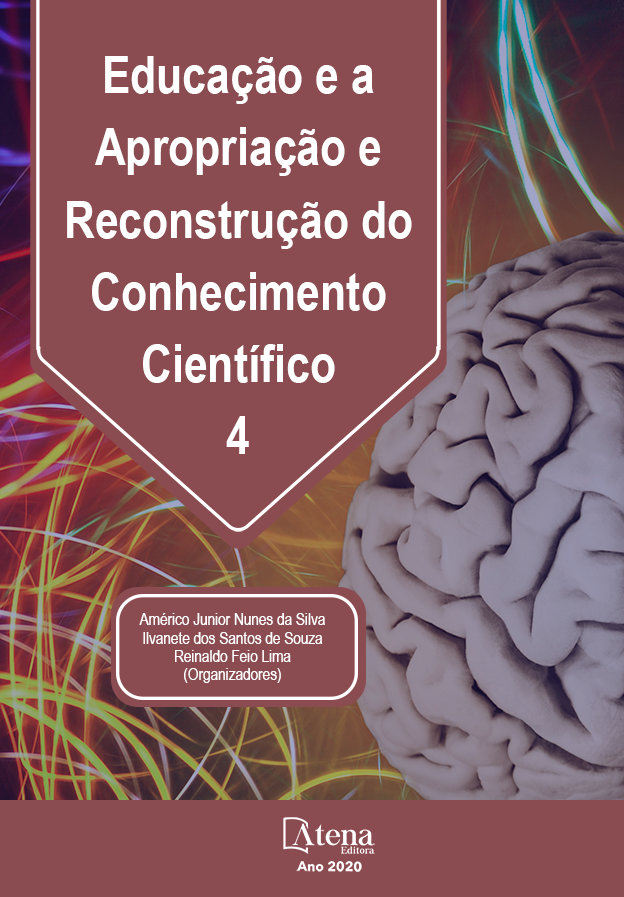
RESIDÊNCIA PEDAGÓGICA: REPRESENTAÇÃO SOCIAL DE FORMAÇÃO CONTINUADA
O objetivo deste estudo foi identificar e analisar as representações sociais de formação continuada implícitas em três documentos relativos à Residência Pedagógica e nos discursos dos professores que participavam do programa do Colégio Pedro II durante a realização da pesquisa. Este estudo foi norteado pela Teoria das Representações Sociais desenvolvida por Serge Moscovici, articulada à Teoria da Argumentação de Chaïm Perelman e Lucie Olbrechts-Tyteca, buscando nos discursos aquilo que legitima condutas, que torna coerente aquilo que efetivamente é falado e defendido pelos professores. Foram realizadas entrevistas semiestruturadas em profundidade com professores dos anos iniciais do Ensino Fundamental e o material coletado foi tratado com base no Modelo da Estratégia Argumentativa proposto por Monica Castro e Janete Bolite-Frant. Essa análise permitiu afirmar que os professores participantes elaboram representações sociais de formação continuada ancoradas na histórica fragilidade da formação inicial que não prepara o professor para o exercício da docência e para a realização de seu trabalho, sendo necessária ser complementada por outra modalidade de formação, a formação continuada. Concluiu-se que o Programa de Residência Docente do Colégio Pedro II, destinado prioritariamente aos professores da rede pública, licenciados com até três anos de conclusão do curso tendo por objetivo aperfeiçoar a formação do professor, disponibilizando um programa de formação continuada, por meio de competências docentes in loco, tendo em vista a complementação da educação recebida na IES de origem com a vivência em ambiente escolar de excelência e cooperar para elevar o padrão de qualidade da Educação Básica, acaba sendo “mais do mesmo”, pois não tem conseguido promover mudanças significativas no trabalho desses professores, uma vez que parece reproduzir o modelo da formação inicial: observações e reflexões ao longo do programa, deixando a prática pedagógica em segundo plano.
RESIDÊNCIA PEDAGÓGICA: REPRESENTAÇÃO SOCIAL DE FORMAÇÃO CONTINUADA
-
DOI: 10.22533/at.ed.99020241117
-
Palavras-chave: Formação docente, Residência pedagógica, Ensino fundamental, Representações sociais, Teoria da argumentação.
-
Keywords: Teacher training, Pedagogical residency, Elementary education, Social representations, Argumentation theory. .
-
Abstract:
The aim of this study was to identify and analyse the social representations of continuing education implicit in three documents related to the Pedagogical Residence and in the speeches of the teachers who participated in the Colégio Pedro II program during the research. This study was guided by the Theory of Social Representations developed by Serge Moscovici, articulated with the Theory of Argumentation by Chaïm Perelman and Lucie Olbrechts-Tyteca, searching in the speeches what legitimizes conduct, which makes what is effectively spoken and defended by teachers. Semi-structured in-depth interviews were made with teachers of the early years of elementary school and the material collected was treated based on the Argumentative Strategy Model proposed by Monica Castro and Janete Bolite-Frant. This analysis made it possible to affirm that the participating teachers elaborate social representations of continuing education anchored in the historical fragility of the early education that does not prepare the teacher for the exercise of teaching and for the fulfilment of his work, needing to be complemented by another tutoring modality, the continuing education. It was concluded that the Residency Program of Colégio Professor Pedro II, intended primarily to public school teachers, graduates with up to three years of completion of the course with the aim to improve teacher training, providing a continuing education program, through on-site teaching skills, taking in consideration the complement of the education received at the HEI of origin with experience in a school environment of excellence, cooperating to raise the quality standard of Basic Education, ends up being “more of the same”, as it has not been able to promote significant changes in the work of these teachers, since it seems to reproduce the model of initial formation: observations and reflections throughout the program, leaving the pedagogical practice in the background.
-
Número de páginas: 15
- Helenice Maia Gonçalves
- Carolina de Castro Nadaf Leal


